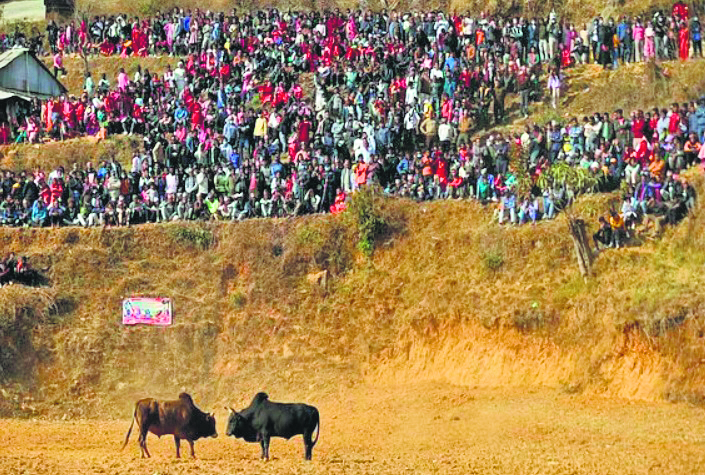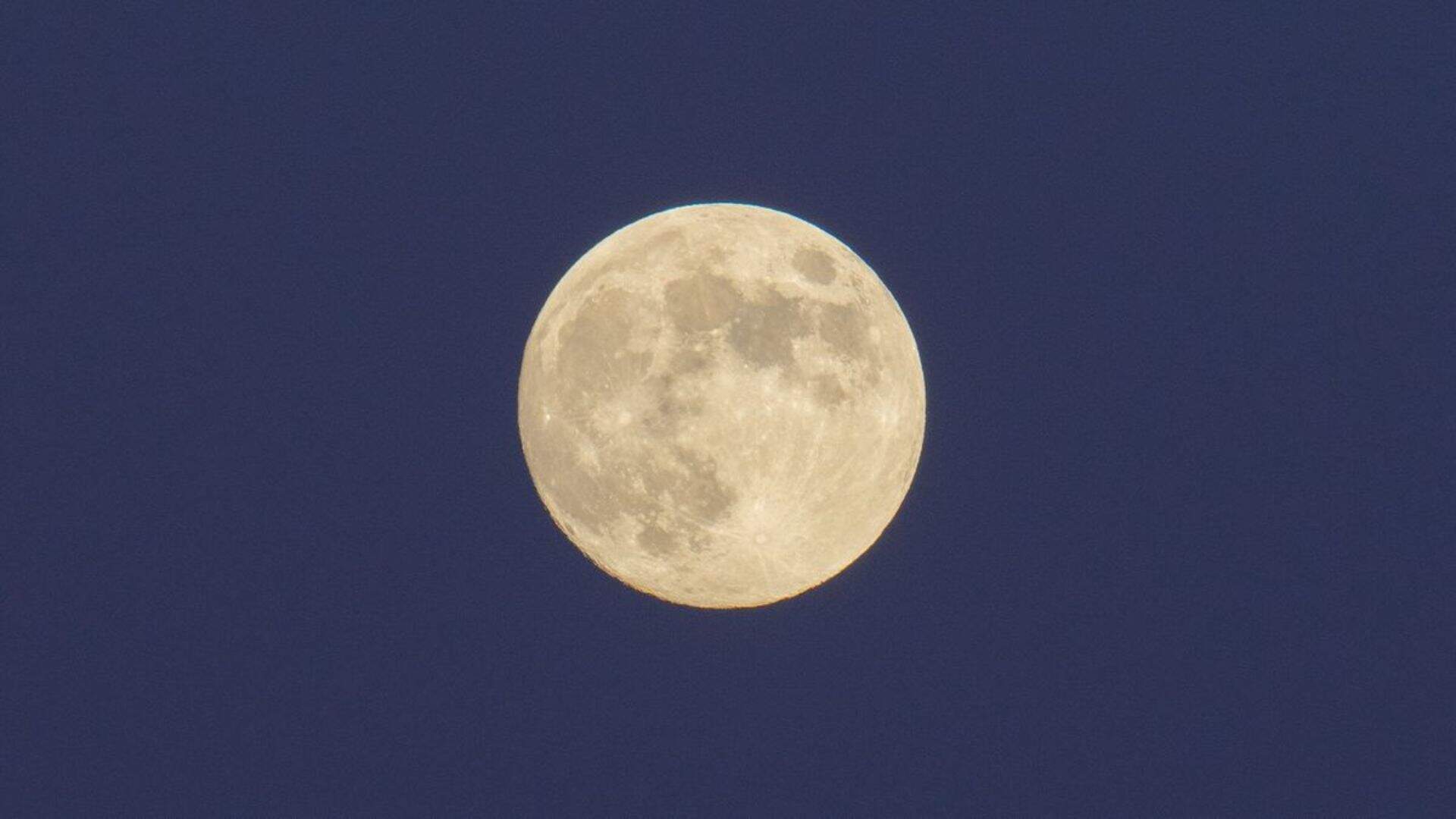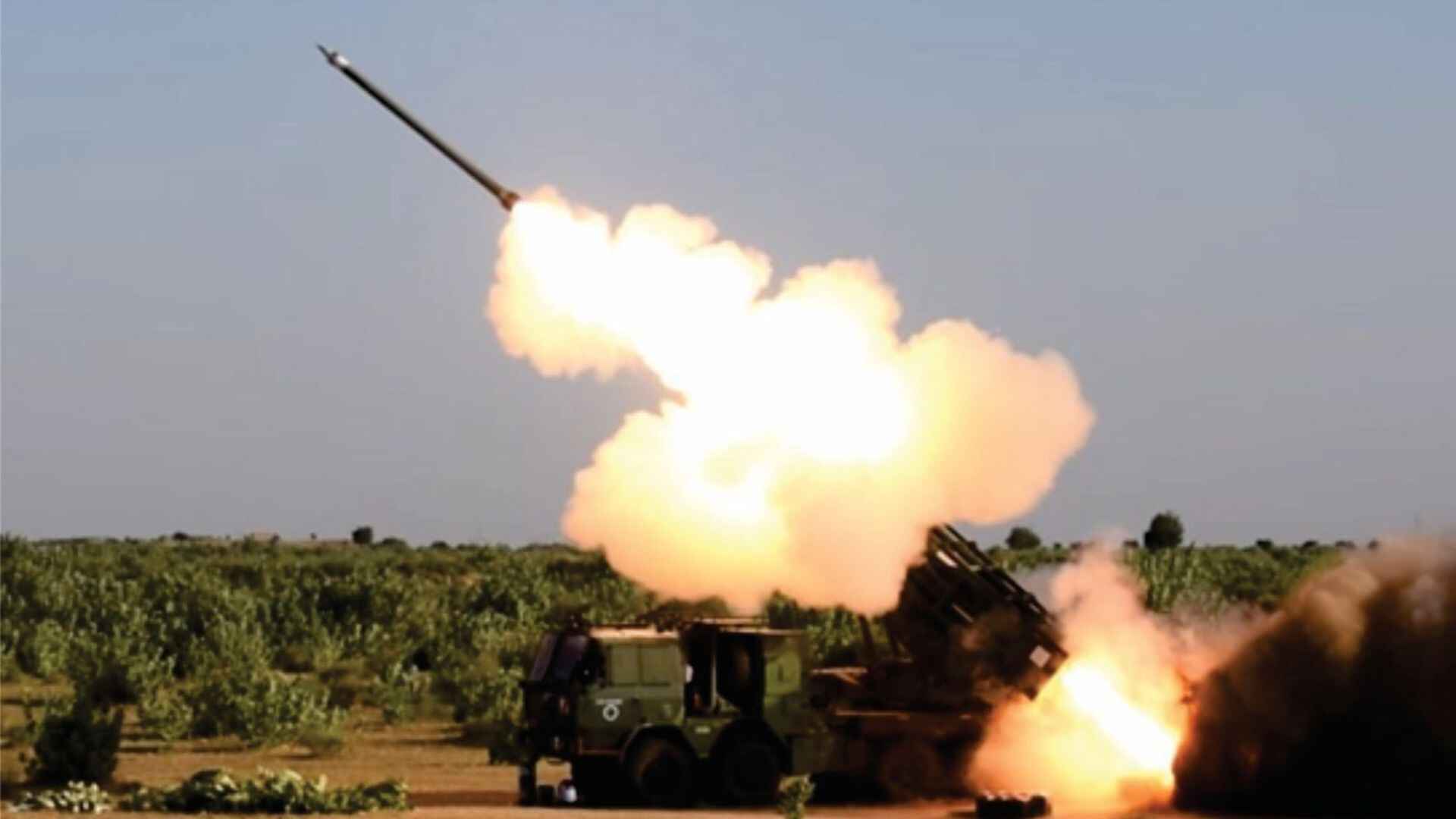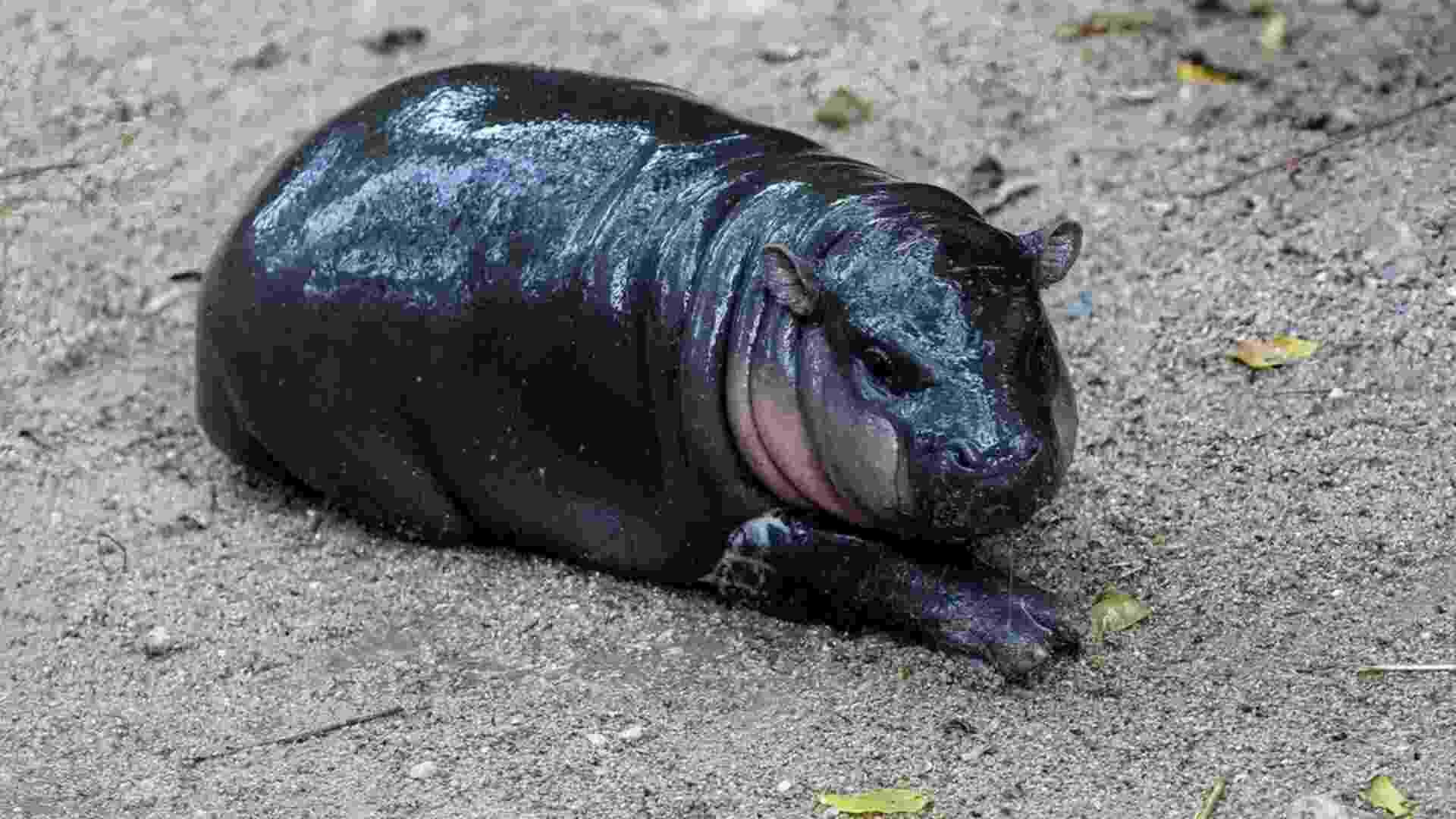
The annual bullfighting festival in Taruka, Nepal is a long-standing tradition that takes place on the first day of Magh, the 10th month of the lunar calendar.
The festival is also known as “Goru Judai” or bullfighting, and dates back to the 19th century. The festival is accompanied by music and dance and is a way for villagers to greet and entertain the king.
Turn by turn, the humpy bulls enter an arena controlled by experienced cattle rearers and fight for as long as 45 minutes to prove their strength.
Surrounded by hundreds of revellers who shout and cheer in support, some of the bulls run off from the arena, while those standing till the end of the allocated time of 45 minutes are declared winners upon proving their strength.
Nepal’s Taruka in Nuwakot District, about 90 kilometres from the capital Kathmandu, has been organising the annual “Bull Fighting” or “Goru Judhai” festival with fanfare. This festival of taming bulls has a history that dates back to the 18th century.
Nuwakot has been celebrating festivity since 1887. It was first introduced by the then Prince of Bajhang, Jay Prithivi Bahadur Singh, for entertainment purposes during his visit to his maternal uncle’s house. Since then, the locals of Taruka Village have continued the tradition over the years.
“While taking care of these tamed bulls, we feed them with coconut, rice, lentils, and grass as per their liking,” Tek Bahadur Bhujel, one of the owners of the bull that participated in Monday’s competition, told ANI.
“The bulls are given nutritious foods some five months before the day of competition, which include rice, lentils, and other items,” Bhujel added.
On Monday, a total of 17 bulls competed to secure the top position in the competition, thus proving their strength as well as the cash prize.
Bull owners feed their bull with various cereals, rice flour, oils, and vitamins to increase stamina and tame their pet, making it eligible for fighting.
Speaking to ANI, another bull owner, Purna Bahadur Regmi, said, “We feed the bulls with flours, grains, eggs, oil, fodder, and other edibles.”
As per guidelines and qualifications set by the organising committee and locals of the Tarkeshwor Rural Municipality where the event is held, a bull used for mating or ploughing the field is unfit to take part in the contest.
A large number of people from Nuwakot itself, as well as, adjoining districts and other parts of Nepal, thronged the mountainous field of Nuwakot on this day to see this annual event.
Since the 19th century, this annual event has not only preserved traditional culture in the Himalayan nation with its vivid cultural diversities, but it has also contributed to the tourism development of the area.















